My life changed forever on Jan. 12, 2017. Ironically, it started out as an incredible day. My then-boyfriend (now husband) and I had found a place to move in together a couple days prior, and one of my best friends asked me to be a bridesmaid in her wedding. It was such a sappy, made-for-TV moment of happiness that I distinctly remember thinking, “Savor this moment; relish it — because life has a way of changing quickly.”
And quickly it did.
Later that afternoon, my father’s girlfriend called to tell me my dad was having another bout of depression that was so bad it had taken him to an outpatient clinic the day before. My dad was again having suicidal thoughts, but he didn’t feel comfortable enough staying at the clinic overnight. She had brought him home to her house outside Kansas City, Mo., but she had left for work earlier that morning. “When I came back around lunchtime, he was missing,” she told me. “And he hasn’t returned my phone calls.”
He’s Missing
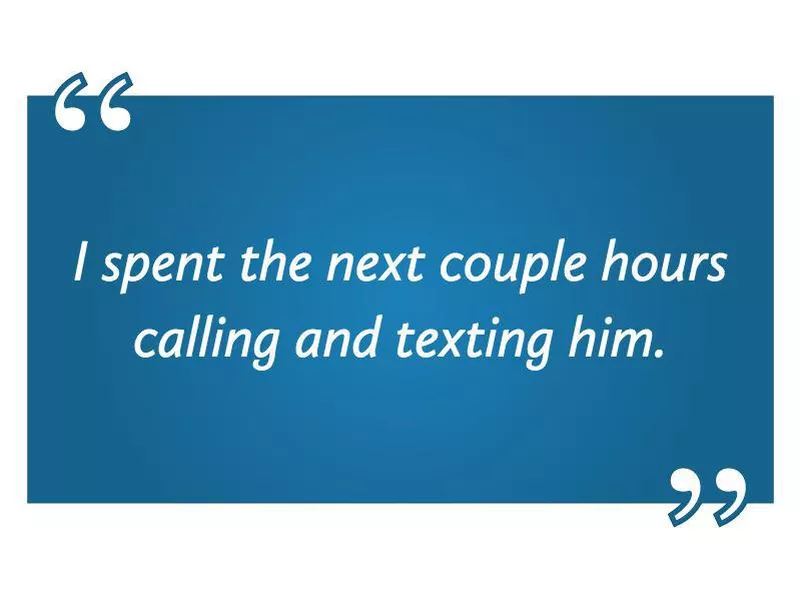
The idea of my father “missing” actually didn’t seem that odd. He was a traveling salesman my entire life and, because of that, he could be difficult to get ahold of at times, especially driving along country roads with limited cell service. He was also a private man and kept a lot of things to himself — and definitely when it came to his mental health.
I told her I’d try calling him and that I’d touch base with her once I reached him. I spent the next couple hours calling and texting him. “Did you see the latest episode of ‘The Bachelor’?” I wrote, hoping that he’d respond to gossip about the latest guilty pleasure we shared. “Hey, also call me when you can, I have a question about work,” is another thing I texted.
The more time passed without a response, the more nervous I became. I called my brother, my grandmother, my dad’s best friend. No one had talked to him.
Finding Out
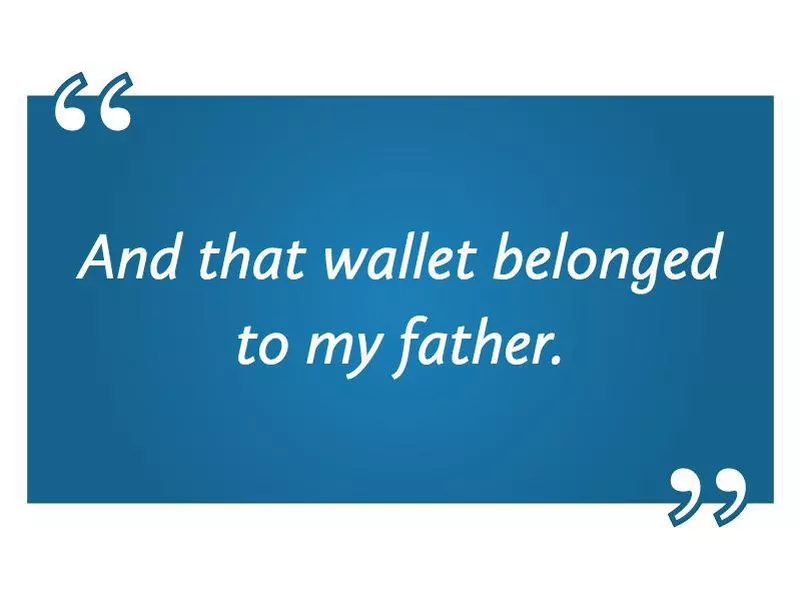
My dad’s girlfriend called again to tell me she was calling the police to see if they could track his phone. And about 30 minutes later, she called again. This time she was in hysterics, and my heart sank. I knew the inevitable had become reality. I knew my dad had taken his life.
I asked her to put the officer on the phone, and he confirmed that a body had been found by a local sheriff’s department in a county about two hours away. And that body had a wallet on it. And that wallet belonged to my father.
A gun was also found, but it didn’t occur to me to ask for those details until several hours later.
The Aftermath
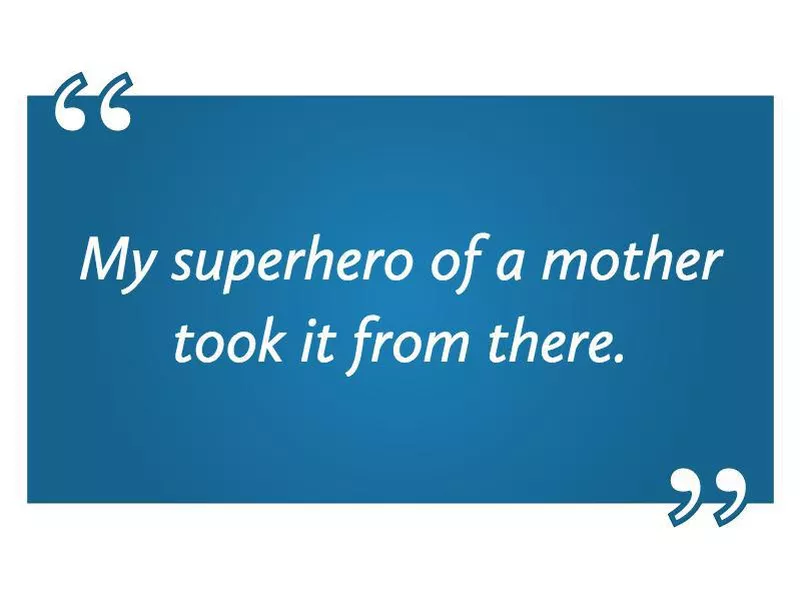
I mustered up the strength to make three phone calls. The first was to my mother, who had split up from my father 10 years before and also still lived in my hometown of Kansas City, Mo. I told her what happened — that a body had been ID’d by a sheriff’s department. That I had the number to said department, but that I didn’t have the strength to call it, my brother or my grandmother. My superhero of a mother took it from there.
I then called my boyfriend and my close childhood friend, who lived in the San Francisco Bay Area with me, and asked them to get to me immediately. After that, I started uncontrollably sobbing, dropped to the floor and curled up in the fetal position, where my roommate found me about 20 minutes later.
Becoming an SOS
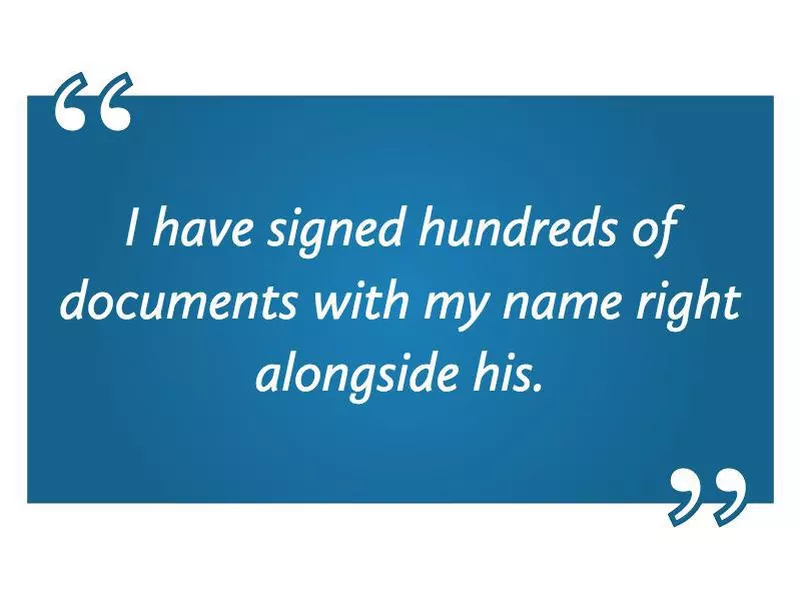
This was just the beginning of the long process that ensued the second I became a survivor of suicide (SOS). Since then, my life has consisted of countless sleepless nights, followed by days where I simply couldn’t get out of bed. As the executrix of my father’s will, it also came with a number of responsibilities that I couldn’t even imagine. I took on his role as a landlord, negotiated contracts with lawyers and have signed hundreds of documents and checks with my name right alongside his — all while fighting back tears.
Since the loss of my dad, a musician friend of mine also took her life, followed by the more public suicides of celebrities Chris Cornell, Anthony Bourdain and Kate Spade. There was a time when seeing deaths like this on the news existed as an abstract thing for me, but now they take on a whole new meaning. Yes, they are a painful reminder of the loss of my father, but also a reminder that now more than ever is the time to address this global issue.
A Public Health Crisis
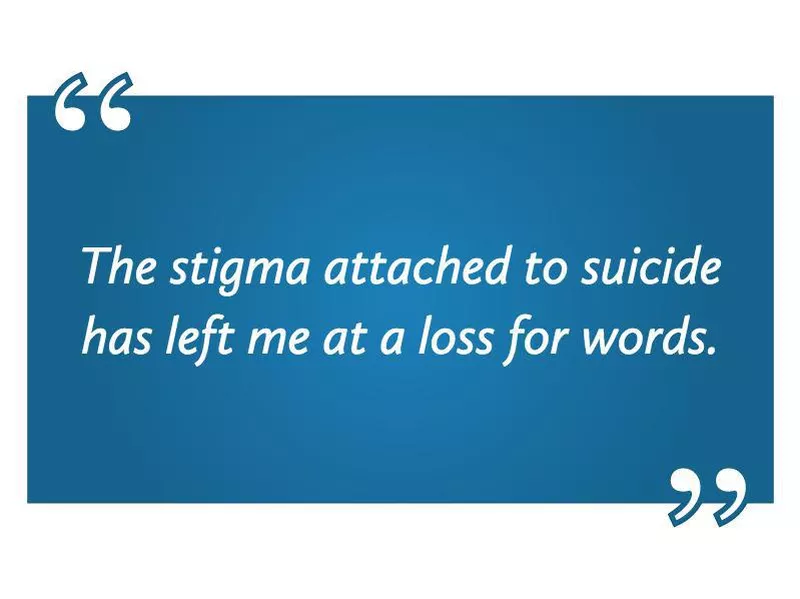
The thing with suicide is that most people don’t know how to begin the conversation — or are too uncomfortable to do so. Even after losing someone to it, the stigma attached to suicide has left me at a loss for words more often than not. And I fear that it’s the lack of talking, the worry of shame and the concern of offending that perpetuates what’s now been dubbed a national public health crisis in the U.S.
I do believe, however, that developing new vocabulary and more acceptance surrounding mental health can lead to better support of those that we care about, whether they’re at risk of suicide or are a survivor of suicide.
The Stats
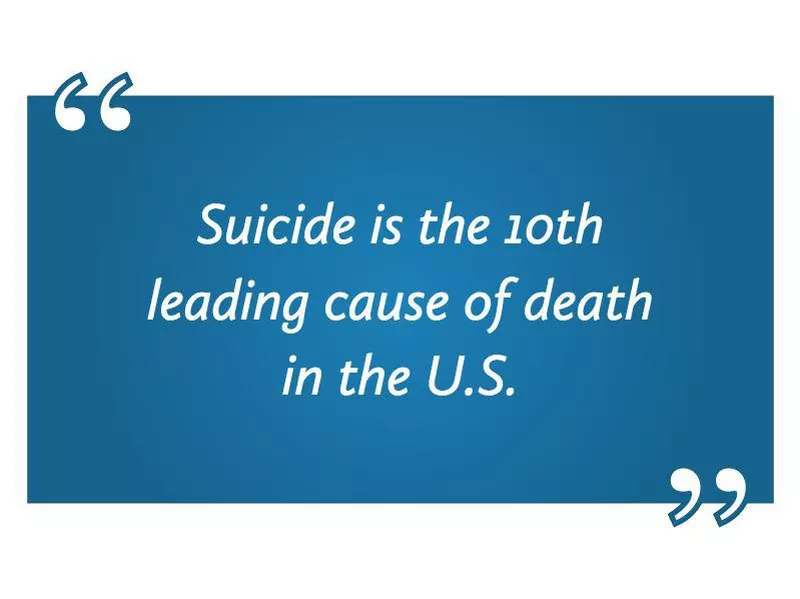
So, in an effort to start a dialogue and get others to understand the magnitude of the situation, let me introduce some stats.
According to the American Foundation for Suicide Prevention, suicide is the 10th leading cause of death in the U.S., and the World Health Organization reports that it’s the 18th leading cause of death worldwide. On average, 48,344 Americans die by suicide each year, and roughly 800,000 people worldwide. And for every suicide that takes place each year, 29 suicides are attempted in the U.S., and more than 20 worldwide. (That’s roughly 1.4 million and 16 million, respectively.)
The rate of suicide in the U.S. is highest in middle age, white men in particular. And firearms accounted for 51 percent of all suicides in 2018 — a stat that happened to ring true for my dad on that fateful day the previous year.
The Cause
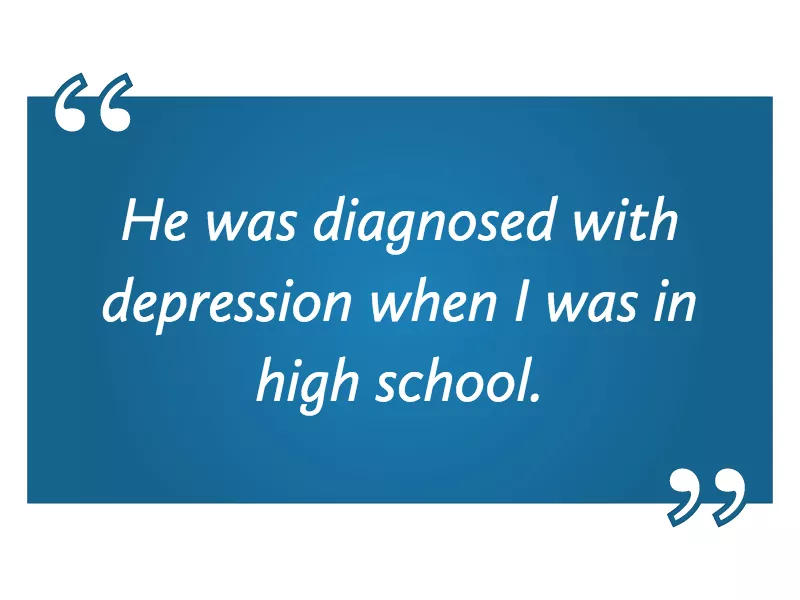
While mental illness is often thought to be the leading cause of suicide, that’s not true. The Centers for Disease Control and Prevention states that more than half of people who died by suicide were not diagnosed with a known mental health condition at the time. In fact, other contributors such as relationships, substance abuse, physical health and money stress are often major factors.
In my father’s case, he was diagnosed with depression when I was in high school (about 15 years ago). But since then, his guilt surrounding infidelity and struggles with alcoholism were other factors that one could argue exacerbated his mental health issues.
Finding Support
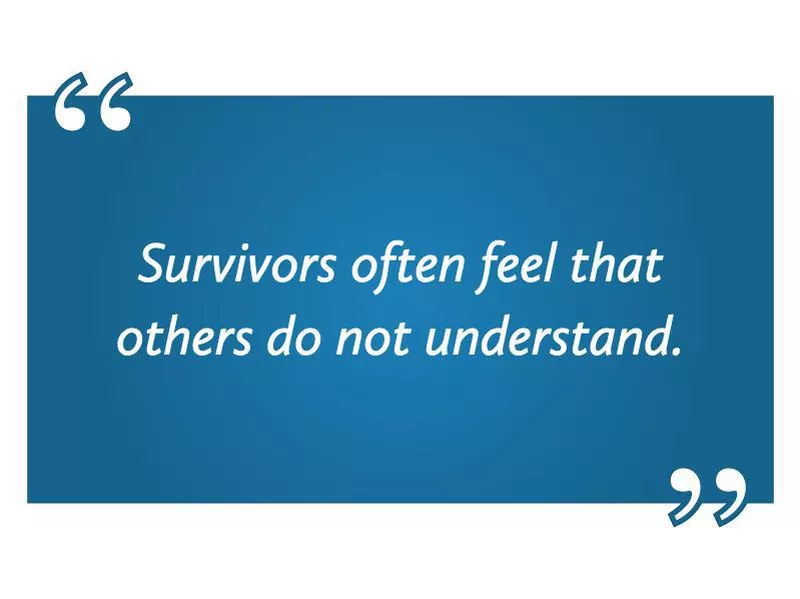
For those who have experienced suicide loss, it’s safe to say there’s nothing like it, which is why finding others who are dealing with similar emotions is crucial. Finding a support group was one of the first things I did in those months after my dad’s suicide, and a suicide-specific one helped significantly more than the general support groups I joined.
“In addition to feelings of sadness and loss, survivors often feel some combination of responsibility, guilt, anger, confusion, shame and shock — all of which make the process of moving through grief more complex, lengthier and less linear than loss due to, say, old age or illness. As a consequence, survivors often feel that others do not understand or do not empathize with their experience,” says Susan Futterman, a Berkeley, Calif.-based marriage and family therapist and director of the Paroutaud Fund for the Future, which was established in honor of her late husband and provides assistance to those struggling with suicide-related issues.
But, Why?
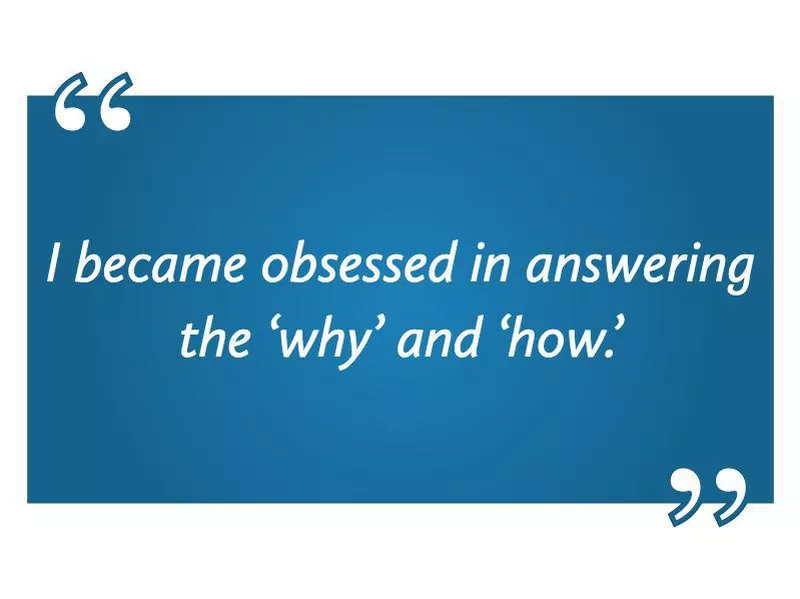
When anyone you love dies, grief is a natural accompaniment, and with suicide, it comes in waves, mixed with several other emotions. The days following my dad’s death were a blur that included getting on a flight from Oakland, Calif., back home to Kansas City, Mo. I cried almost the entire two flights and seven hours there.
The grief was mixed with a whole lot of confusion. While my father had a long history with depression, not many people knew about it. I had to explain to some of his closest friends that it was a battle he had fought for years. But even knowing the truth, I honestly never thought he was capable of taking his life, of inflicting that kind of pain on our family. I thought, “How could he do this to me? To my brother? To my grandmother?”
Over time, I became obsessed in answering the “why” and “how” — so much so that I called the sheriff who had found his body to ask for the specifics I wasn’t prepared to hear months earlier. In that search, I came to realize that this decision wasn’t about us, and taking myself out of the equation was key.
The Shame
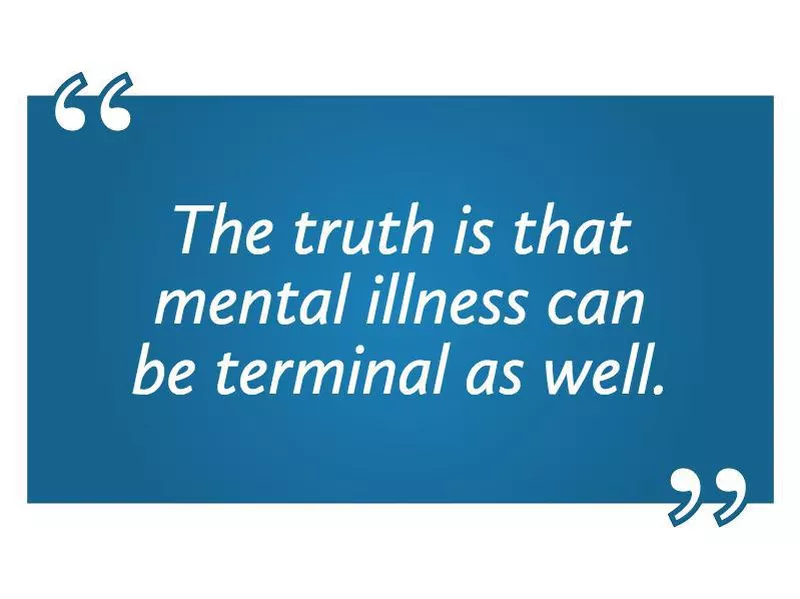
One of the ways I began to cope with my father’s death was by looking at it as if he died from any other common illness, say cancer. Mental illness, after all, can be terminal as well. Throughout this process, I learned to accept and, dare I say, respect my father’s decision because I knew it stemmed from an overwhelming amount of pain for him for which there was no cure.
Because of that, I was never ashamed of my father’s choice. I knew he had depression, and I knew that this circumstance was a product of that. But I know there are several survivors of suicide who aren’t as lucky. Too often, the blame for suicide is placed on its victims, and that can lead to a significant lack of support and misunderstanding around it.
“The stigma around suicide may prevent survivors of suicide loss from speaking freely about their loved one for fear of being told that suicide is a sin, suicide is a cowardly act or that time heals all wounds — none of which is helpful and none of which is true,” says Futterman.
Don’t Say “Committed”
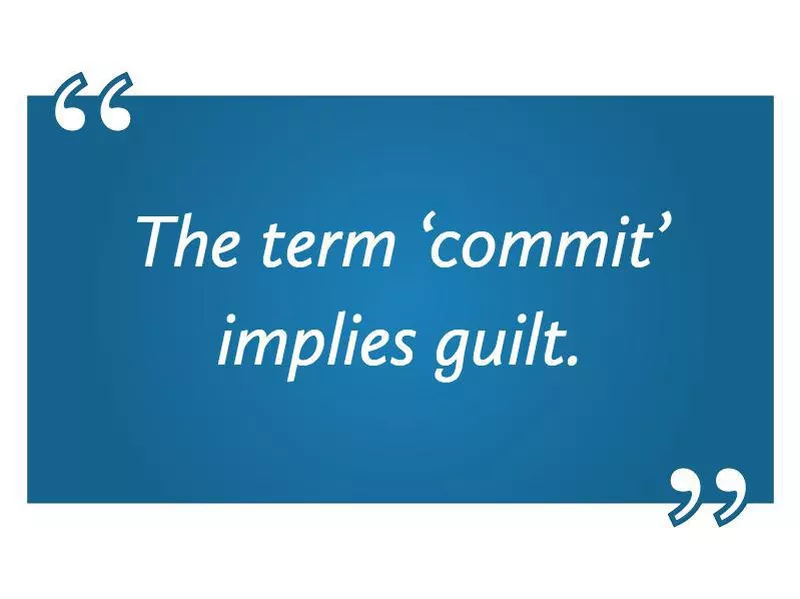
One thing that I’ve learned after being among suicide survivors is to not use the word “committed.” The term “commit” implies guilt, as in you commit a crime.
“Many clinicians who work frequently with survivors of suicide loss or with individuals who have attempted suicide avoid the phrase ‘committed suicide.’ That is part of a larger effort to reduce stigma around suicidality and to encourage discussion of the issue,” says Futterman. “To avoid any possibility that the term will contribute to the stigma around suicide or imply any sort of judgment, we simply say that the person took their own life or that they died by suicide.”
Increasing Awareness
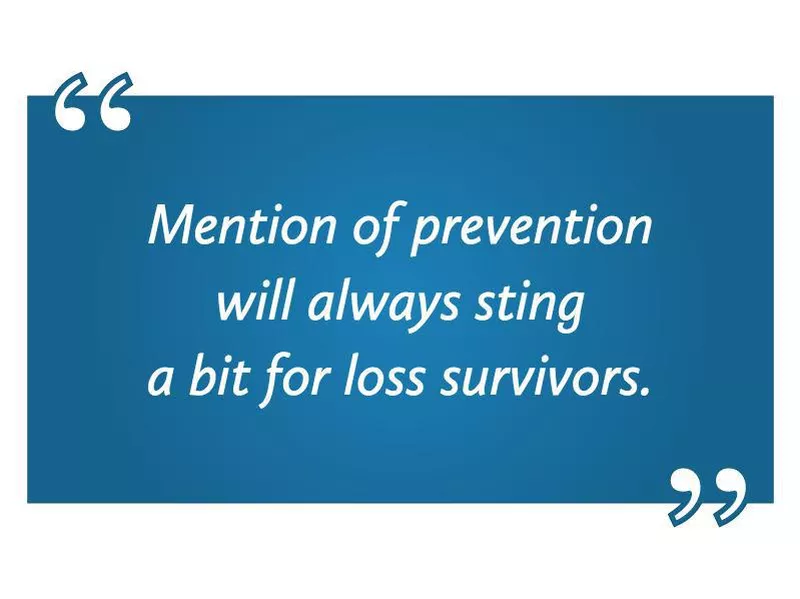
Unlike measures you can take to avoid a disease or to stay safe from, say, a murder, it’s difficult to determine ways to “prevent” suicide. Some say that sharing hotline numbers or turning to prevention tip lists provides answers — and sometimes they do — but there’s much more to it.
“Increasing awareness and making more space for the conversation overall is so needed. And we should seek to better understand, to intervene where that’s a possibility and to provide support for those struggling,” says Katie Seidler, community manager for The Dinner Party, a global organization that connects 20- and 30-somethings who have lost someone close to them. “But mention of prevention will always sting at least a little bit for loss survivors. Part of the healing process for us is trying to quiet the voice in our minds that always tells us there’s something else we could or should have done to save someone we love.”
How You Can Help
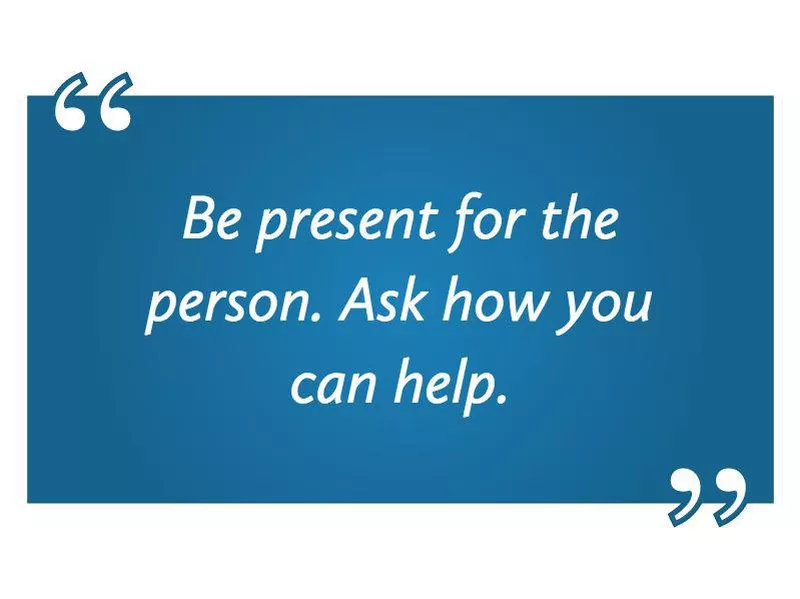
The lack of awareness and conversation around suicide makes it difficult to know how to provide help or support for those at risk of suicide or those who are survivors of suicide.
But here’s a place to start: “Be present for the person. Ask how you can help. Maybe check in on them to see if they are eating, need help getting around or if you can assist them in finding a therapist or support group,” Futterman says. “Don’t try to ‘fix them,’ make them feel better, offer advice or assume you know or understand what they are feeling. Instead, let the person know that you hear them, that you support them and that whatever their emotions are and however intense they may be, they are important and valid.”
Creating a New Culture
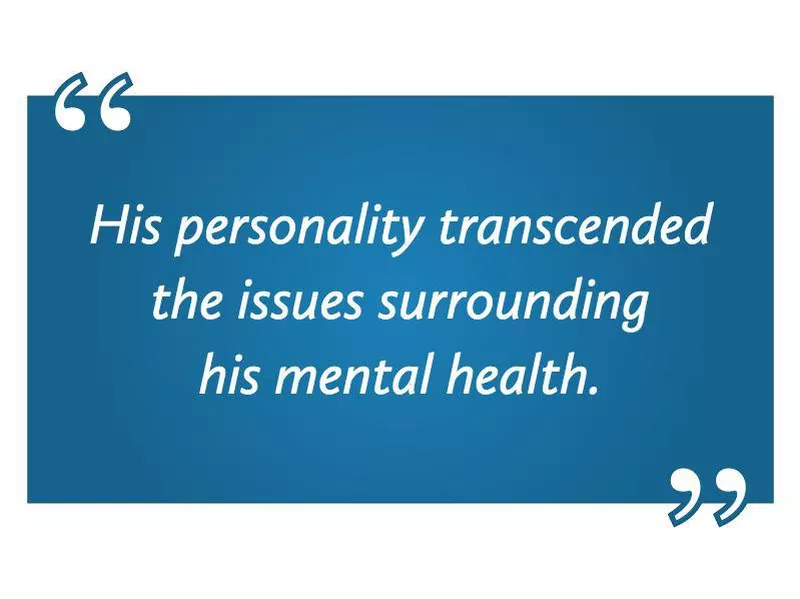
My dad was someone who gave a lot in life. On several accounts, I saw him walk into stores and bring food to the homeless person begging for money out front. He was also interested in helping veterans, which he did through his work with the Wounded Warrior Project.
My dad was also a goofball — sort of a Larry David type, with distinctive quirks that led him to take on “fun” endeavours like selling beer from a cooler at an 80,000-person music festival. Or that guaranteed he would get a prime tailgating spot at a football game — and have all the grilling essentials that came along with it. It’s these aspects of him that I will remember because his personality far transcended the issues surrounding his mental health.
While this year and a half has been one of many sorrows, I’ve also managed to turn my grief into some positives. Through group therapy and as a host for The Dinner Party, I’ve learned how to speak more freely about the issues surrounding suicide and mental health — something I wish my dad had learned to do.
Now, my hope is that others will join me in creating a culture of openness and transparency around these topics.